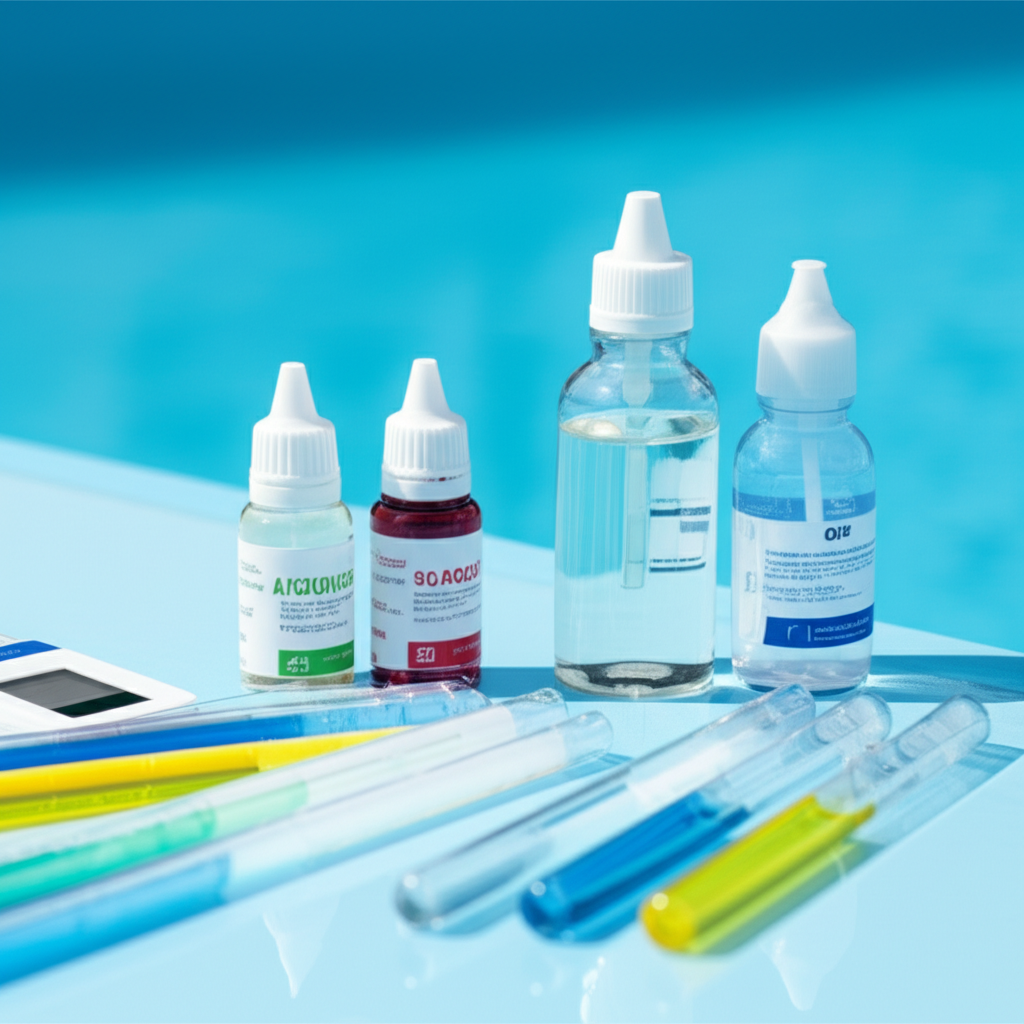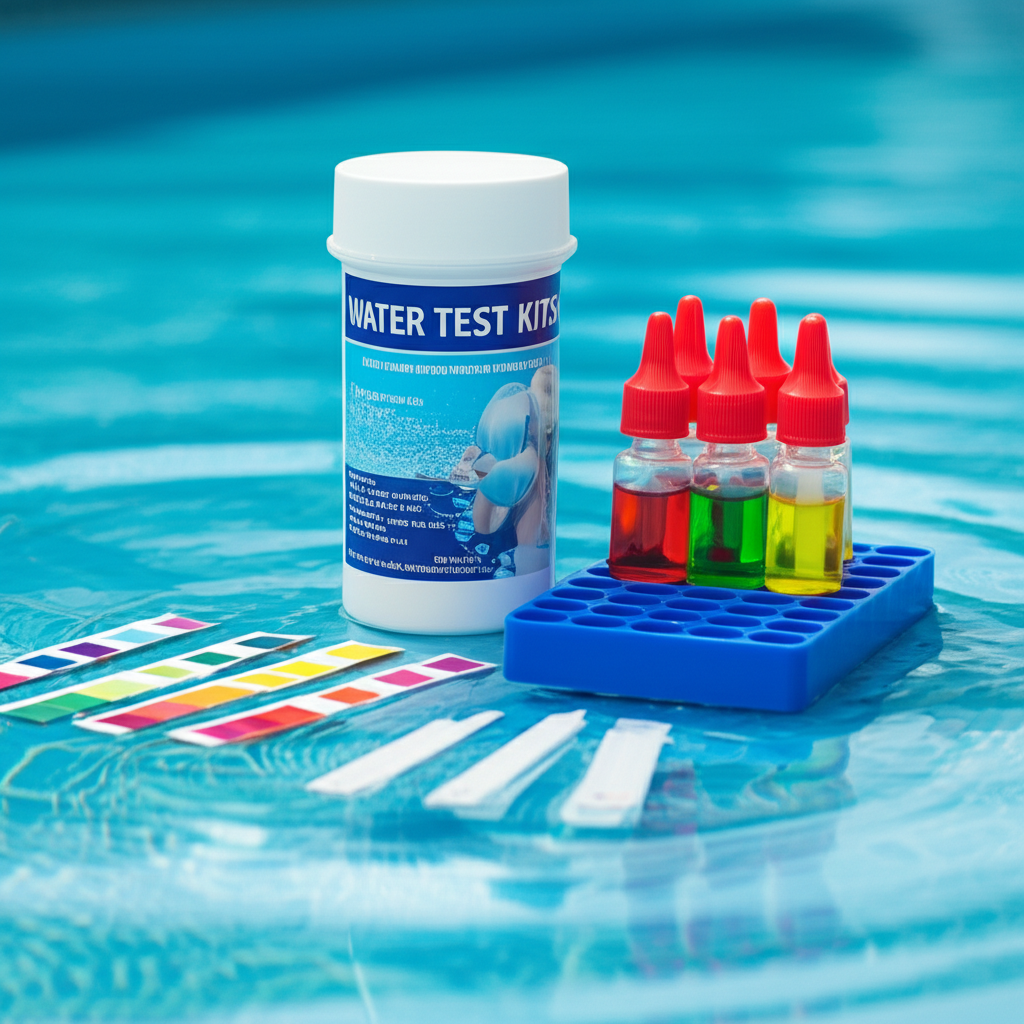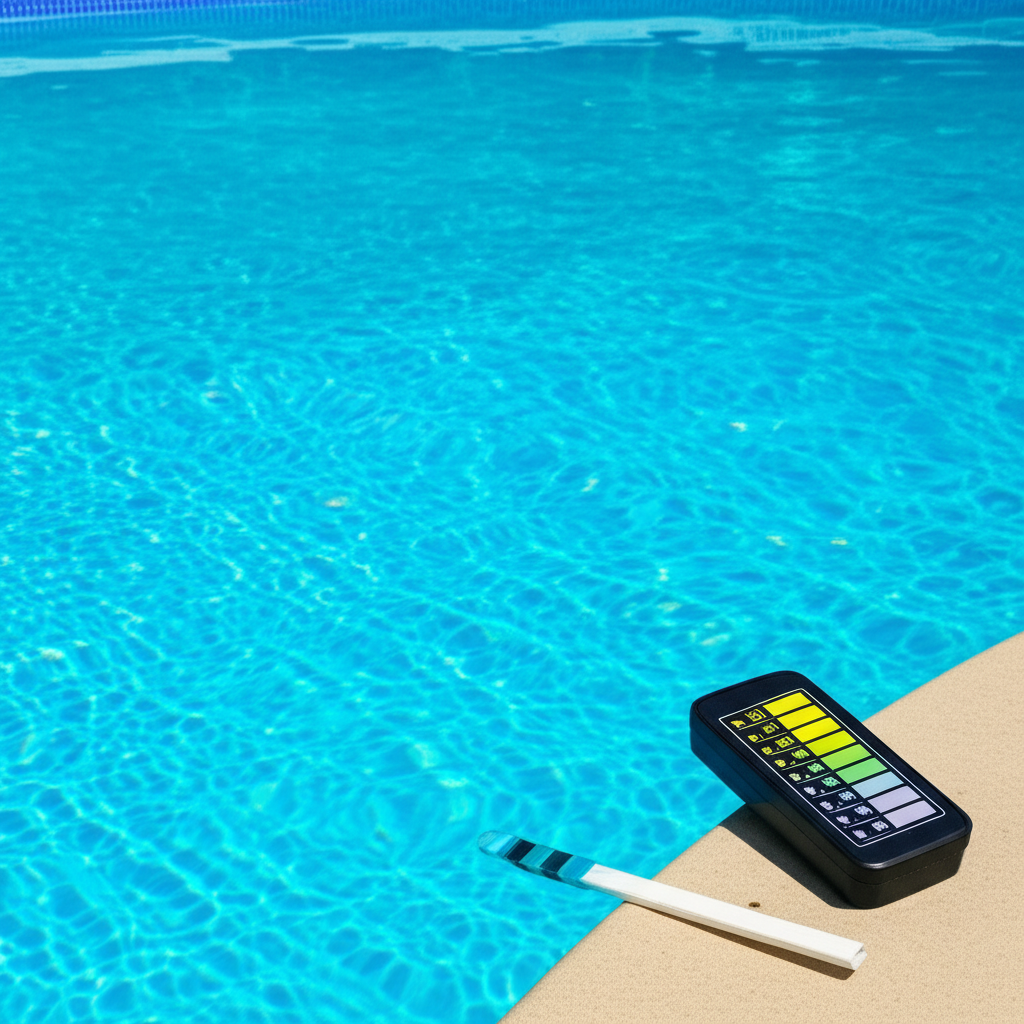- Why Consistent Pool Water Testing is Non-Negotiable
- Understanding Key Pool Water Parameters
- Choosing the Right Water Test Kits for Your Pool
- The Convenience of Test Strips
- The Precision of Liquid Test Kits
- Advanced Digital Testers
- Maximizing the Effectiveness of Your Water Test Kits
- Troubleshooting Common Issues with Your Testing Tools
Water test kits are the unsung heroes for any pool owner dreaming of pristine, inviting water without constant hassle. They provide the vital insights needed to maintain a healthy and sparkling swimming environment, effortlessly transforming murky or problematic water into a swimmer’s paradise. Understanding and utilizing these essential tools is the cornerstone of effective pool care, ensuring not only the aesthetic appeal of your pool but also the safety and comfort of everyone who enjoys it.
Why Consistent Pool Water Testing is Non-Negotiable
Maintaining the chemical balance of your pool isn’t just about clear water; it’s fundamental to swimmer health, equipment longevity, and the overall enjoyment of your aquatic oasis. Imbalanced water can lead to a host of problems: stinging eyes, skin irritation, corrosion of pool parts, scaling, and the dreaded growth of algae. Regular testing with quality water test kits allows you to catch these issues before they escalate, enabling timely adjustments to chemicals and preventing costly repairs or unpleasant swimming experiences. It’s a proactive approach that saves time, money, and frustration in the long run.
Understanding Key Pool Water Parameters
Before diving into the types of testing methods, it’s crucial to understand what you’re testing for. Each parameter plays a specific role in your pool’s ecosystem:
pH: This measures the acidity or alkalinity of your water. The ideal range is 7.4-7.6. High pH can cause cloudy water and scaling, while low pH can lead to corrosion and swimmer discomfort.
Chlorine (Free Available Chlorine – FAC): This is your primary sanitizer, killing bacteria and algae. The ideal range is 1-3 ppm (parts per million). Too little chlorine means inadequate sanitization; too much can be harsh on swimmers.
Total Alkalinity (TA): This acts as a buffer for pH, preventing drastic swings. The ideal range is 80-120 ppm. Improper TA makes pH difficult to control.
Calcium Hardness (CH): This measures the amount of dissolved calcium in your water. The ideal range is 200-400 ppm. Low CH can lead to corrosive water, stripping calcium from pool surfaces and equipment; high CH can cause scaling.
Cyanuric Acid (CYA): Also known as stabilizer or conditioner, CYA protects chlorine from degradation by UV rays. Ideal levels are 30-50 ppm for outdoor pools. Too little means chlorine evaporates quickly; too much reduces chlorine’s effectiveness.
Other parameters: Some advanced kits also test for phosphates, metals (copper, iron), and salt levels (for saltwater pools), which can also impact water quality.
Choosing the Right Water Test Kits for Your Pool
When it comes to selecting your pool testing arsenal, you generally have a few primary options, each with its own advantages and considerations.
The Convenience of Test Strips
Test strips are perhaps the most popular and easiest method for quick, routine checks. These small, disposable strips are impregnated with reagents that change color when dipped into your pool water. You simply dip a strip, wait a specified amount of time (usually 15-30 seconds), and then compare the resulting colors to a chart provided on the packaging.
Pros: Incredibly fast and easy to use, highly affordable, and readily available. They are perfect for daily or every-other-day checks, allowing pool owners to monitor basic parameters like pH, chlorine, and alkalinity with minimal effort. Their simplicity makes them great for beginners.
Cons: Less precise than other methods. The colors can be subjective to interpret, and accuracy can be affected by factors like lighting, expiration dates, or improper storage. They often test fewer parameters than more advanced kits.
The Precision of Liquid Test Kits
For those seeking greater accuracy and a more comprehensive analysis, a liquid test kit (often referred to as a “reagent drop kit”) is the preferred choice. These kits typically involve taking a water sample into a small vial, then adding drops of various liquid reagents. The reagents react with the chemicals in the water, causing a color change that you then compare to a color chart or, in some cases, count drops until a specific color change occurs (titration).
Pros: Significantly more accurate and reliable than test strips due to the precise chemical reactions. Many liquid kits can test a wider range of parameters, including Free Chlorine, Total Chlorine, pH, Alkalinity, and Calcium Hardness, providing a more complete picture of your pool’s chemistry. They are ideal for troubleshooting specific issues and for weekly or bi-weekly detailed testing.
Cons: Can be more time-consuming to use, involving multiple steps and careful reagent additions. The reagents have a shelf life and must be stored properly. They are generally more expensive upfront than test strips.
Advanced Digital Testers
While not a primary keyword, it’s worth a brief mention that digital testers offer the highest level of precision, using electronic sensors to provide exact numerical readings. They are often more expensive but eliminate human error in color interpretation.
Maximizing the Effectiveness of Your Water Test Kits
To achieve the most accurate and useful results from your water test kits, follow these best practices:
1. Test Regularly: For optimal balance, test strips can be used daily or every other day, while liquid test kits should be employed weekly.
2. Collect Samples Properly: Always submerge the test strip or sampling vial at least 18 inches below the surface, away from return jets or skimmers, for a true representative sample of the main body of water.
3. Read Instructions Carefully: Different kits have different wait times and comparison methods. Follow the manufacturer’s instructions to the letter.
4. Store Kits Correctly: Keep test strips and liquid reagents in a cool, dark, dry place, sealed tightly to prevent degradation from moisture or sunlight. Check expiration dates, especially for liquid reagents.
5. Act On Your Results: Testing is only effective if you use the information. Learn how to interpret your readings and make the necessary chemical adjustments to bring your pool back into balance.
Troubleshooting Common Issues with Your Testing Tools
Your water test kits are your first line of defense against common pool problems:
Cloudy Water: Often indicates low chlorine, high pH, or high calcium hardness. Test all parameters.
Algae: Almost always a sign of low chlorine and/or high phosphates. Use your chlorine test and consider phosphate testing.
Eye/Skin Irritation: Can be caused by imbalanced pH or very high/low chlorine levels.
Scaling: Usually due to high pH and/or high calcium hardness.
* Corrosion: Can result from low pH and/or low calcium hardness.
With consistent testing, you can identify these root causes quickly and apply the correct treatment, saving yourself from more extensive and costly remedies later.
In conclusion, achieving stunning pool water effortlessly is entirely within reach with the right approach to testing. Whether you opt for the quick convenience of test strips or the meticulous accuracy of a liquid test kit, making regular water analysis a core part of your pool maintenance routine is paramount. These indispensable tools empower you to proactively manage your pool’s chemistry, ensuring a beautiful, safe, and utterly enjoyable swimming experience all season long.



